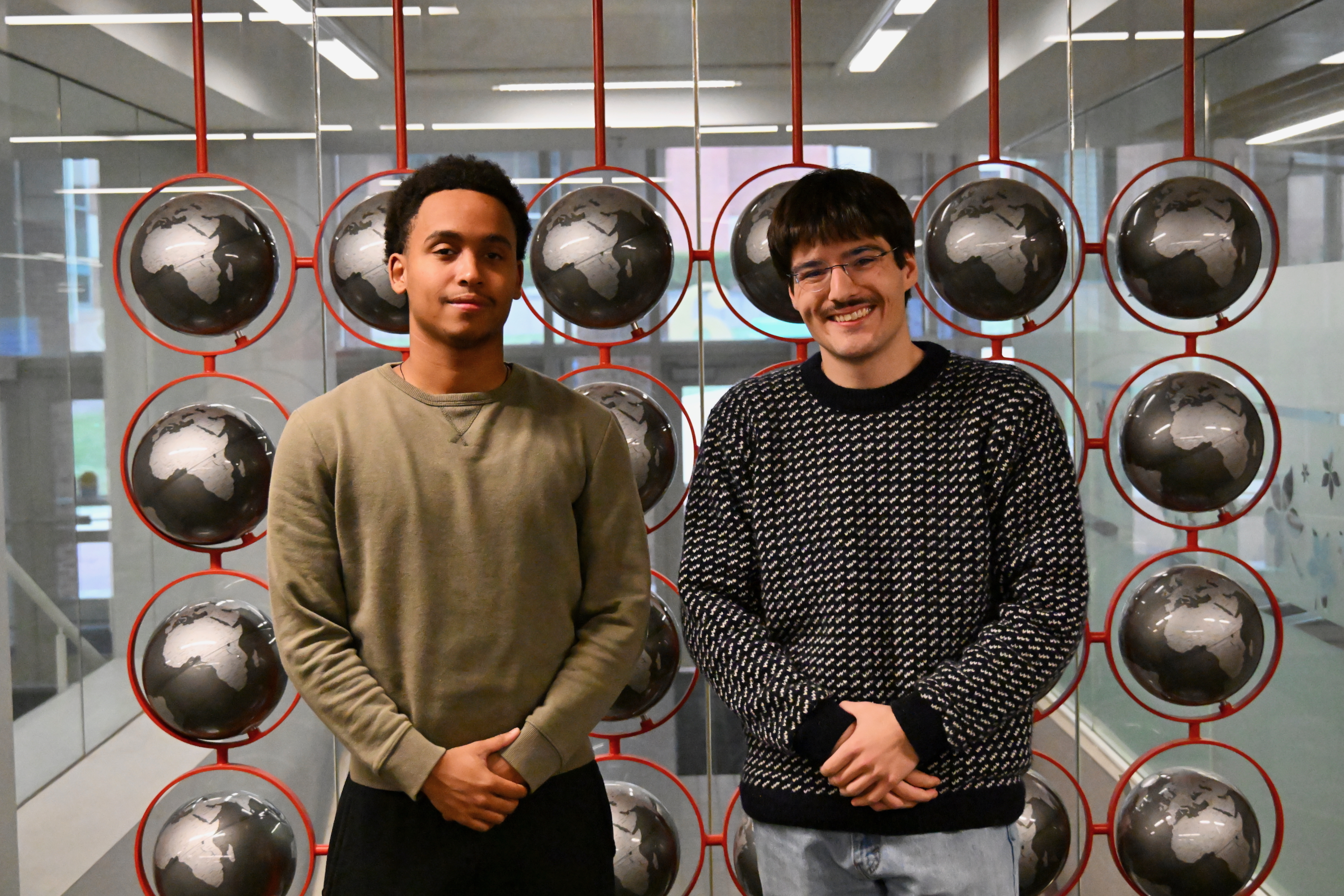“Having the Diplomacy Lab available on the Ohio State campus gives students a taste of real-world problems that helps them build skills and understand how government (and sometimes non-governmental) organizations tackle projects through teamwork, planning and communication,” said Angela Brintlinger, chair of the Department of Slavic and East European languages and cultures and Center for Slavic, East European and Eurasian Studies director.
In collaboration with the Mershon Center for International Security Studies, Brintlinger successfully applied for and earned Ohio State a spot as an official U.S. Department of State Diplomacy Lab site in 2023.
Becoming a host site has put Ohio State students front and center in an international effort to lead applied research that addresses important foreign policy challenges such as sustainable development, global health, energy security, women's empowerment, countering extremism and human rights.
In autumn 2024, Ohio State faculty developed three Diplomacy Lab projects that got students doing research, meeting with government officials and sharing their findings for real-world application. The three autumn semester courses spanned disciplines, focusing on diplomatic issues as diverse as far-right populism in Europe, medical clearance processes for U.S. diplomats and military coups in Africa.
Shrija Shandilya, a first-year student studying public policy analysis, participated in a course taught by Center for African Studies Director Ousman Kobo, alongside Assistant Director Jacien Carr. “This project has been eye opening. I’ve learned so much about African history that I did not previously know,” she said.
“This was something that interested me initially because of the policy and international relations aspect of this project, but greater because of how much this project has to do with studying the impacts of colonialism – being from India, this is a topic that my family and I often discuss. This project appealed to me because I could be involved in something that aids in finding solutions to a problem faced by many.”
“Students see more clearly how the skills they are mastering in an educational setting will translate into the workplace,” said Brintlinger, “and they have the excitement of potential implementation of their ideas and research.”
This program will continue in the year to come, with two spring courses currently approved. A graduate seminar, History 7500, will explore global civil rights movements, and a city and regional planning lab through the Knowlton School will help advance Ukraine’s green rebuilding efforts.
As part of the Knowlton course, Ohio State students will collaborate with Ukrainian students from Priazovskyi State Technical University, Ukraine National Forestry University, Stepan Gzhytskyi National University of Veterinary Medicine and Biotechnologies of Lviv, Lviv Polytechnic National University and other Ukrainian institutional partners to craft recommendations for the green rebuilding of a town called Maryinka.
Lecturer Gala Korniyenko said that the project is important “because it will provide Ohio State and Ukrainian students with theoretical and practical knowledge that is necessary to comprehend and contextualize the processes of international planning and will improve their communication skills and broaden their horizons.”
From professional skills to teamwork to international understanding, Diplomacy Lab courses help students prepare for lives after college. “Getting the chance to work with the actual client, people from the State Department who want university expertise and a fresh view of issues they tackle in their daily work, is an invaluable peek into post-graduation life,” said Brintlinger.
Shandilya reiterated the value of this experience in preparing her. “In the future I hope to work in diplomacy, and this gave me an interactive way to learn about some of critical issues.” She described the hands-on learning as “invaluable,” calling it an “experience that has urged and supported me to go on with my goals of working in diplomacy.”
